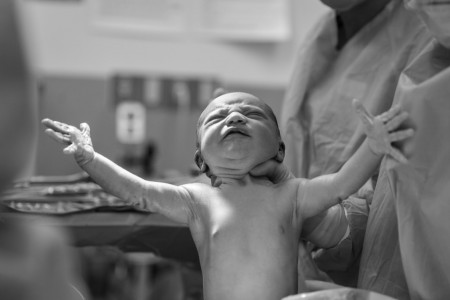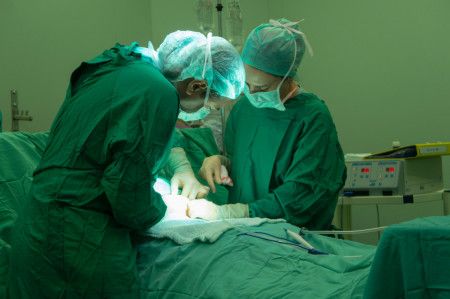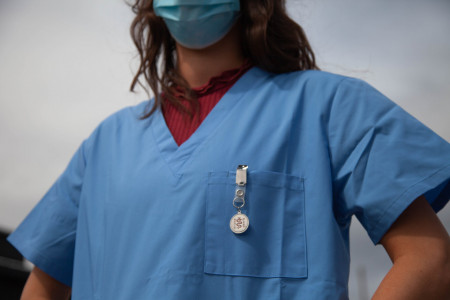
University of Bolton, Deane Road, Bolton. BL3 5AB
Tel:
Email:


“At the University of Bolton, we take great pride in providing a quality, supportive learning environment for our students.”
Professor George E Holmes DL | President & Vice Chancellor
“...tutors are very supportive and you’re not just a student ID number, at this university you are an individual with a name.”
Ellisse Vernon | BSc (Hons) Adult Nursing
Back to menu
Back to menu
Study with an Off-Campus Partner
Back to menu
Back to menu
University of Bolton, why we are the right choice
Location - Bolton, Greater Manchester

25/03/2022
From the moment she becomes pregnant, a woman is expected to conform to the accepted societal norms with regards to both her pregnancy and the birth of her baby. And when she chooses not to follow this path, can be judged for doing what works for her as an individual.
Whether this is the first pregnancy or not, the one person a woman should be able to turn to for accurate and impartial advice throughout her pregnancy is her midwife. Sadly this hasn’t always been the case until recently; with the NHS pushing the narrative that hospitals need to reduce their numbers of C-section births in favour of what it terms “normal births”. This gives those considering a midwifery degree in the UK somewhat of a dilemma. Should they advise their charges to consider a c-section for medical reasons, or to avoid one if they can?
What is a “Normal Birth”?

Let's be clear, what the NHS is talking about when it says “normal birth” is a vaginal birth. For a medical body, it seems the term is somewhat avoided, which is strange when you consider it is the correct medical term. Those taking a Midwifery Degree Apprenticeship will certainly hear this term used in practice. Ultimately, however, the term “normal birth” implies that a c-section is in some way less of a birth.
There is, of course, another way of looking at this. If you’re considering a midwifery degree, you may feel that a “normal birth” is a healthy baby and a healthy mum with no complications. Complications can and do, happen during birth and this is regardless of which route is taken. Vaginal births can result in tears, shoulder dystocia births and a number of other issues to mum or baby plus there may need to be several interventions along the way if the birth is not going as planned. Can these truly be classed as normal births? These complications can often lead to worries in subsequent pregnancies with more women looking to a c-section as a solution.
Why a C-section?

Sometimes a consultant will suggest that a c-section is the best option for both mother and baby, as anyone taking a Midwifery Degree Apprenticeship will learn over time. There are a number of medical reasons why this might be appropriate. However, the final decision over how she gives birth is often left to the mother, once all the facts have been presented. This is particularly true in a pregnancy following a c-section where the mother may choose to opt for a VBAC (Vaginal Birth After Caesarean).
There are instances too, where a mother may ask for a c-section rather than have a vaginal birth. No one should be made to feel like she is less of a woman for choosing to have a c-section instead of a vaginal birth. Indeed her choices should be validated and respected. Statistically, a planned c-section carries less risk than an emergency c-section and these usually occur when a vaginal birth experiences complications.
Getting Away From the Traditional Definition of Normal
Birth is not a competition. There is no right or wrong way of doing things and it is time to move away from the idea that a “normal birth” is anything other than the best outcome for all concerned. Instead of knocking expectant mothers down at a particularly vulnerable time, we should be building them up. Fortunately, the NHS would now seem to agree, at least in part with this as they look to abandon “normal birth” targets, which means those taking a midwifery degree will hopefully not have to hear - or use - this outdated term.
BSc Midwifery at the University of Bolton – Helping the Future Grow

If a career in midwifery is something you have been considering, assisting women through one of the most important events of their lives and helping to bring new life into the world, then the University of Bolton can help you gain those all-important qualifications.
At Bolton, we offer a BSc Midwifery course that can pave the way to an incredibly rewarding career. Our state-of-the-art facilities and specialist educators can provide you with the perfect setting for gaining the expertise and skills that you need for a career in midwifery, and this can be studied as part of a Midwifery Degree Apprenticeship.
The University of Bolton has been voted 1st in the North West for student satisfaction for the fourth year running*. The university experience that we offer is welcoming, inclusive and always puts the needs of our students first, offering them an opportunity to experience #UniAsItShouldBe.
If you would like to learn more about the university and our midwifery course beginning in April 2022, we would love to talk to you. Our team of friendly advisors can be contacted on +44 (0)1204 900 600. Alternatively, you can e-mail the team at enquiries@bolton.ac.uk. However you choose to get in touch, we’ll be happy to help, advise and support you.
*Complete University Guide 2022, 2021, 2020, 2019